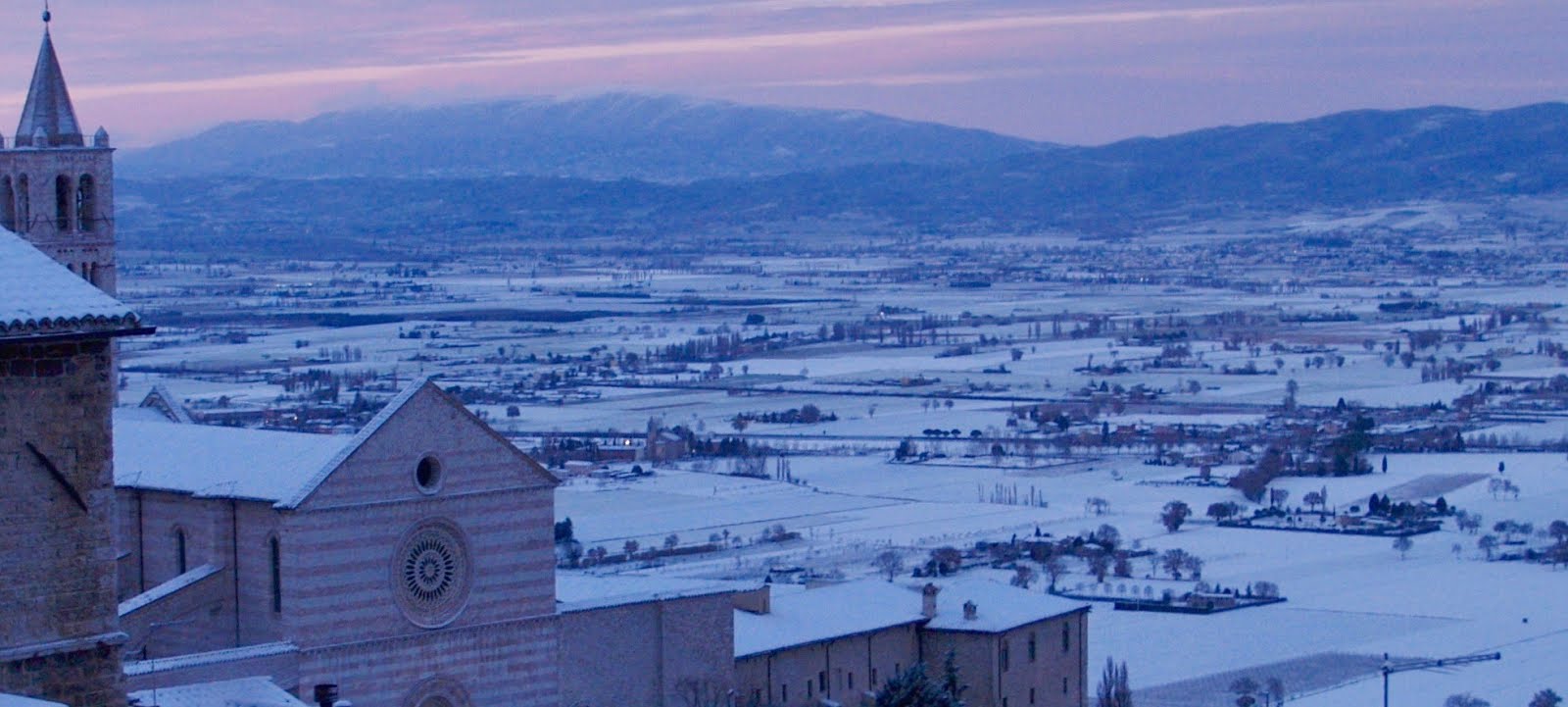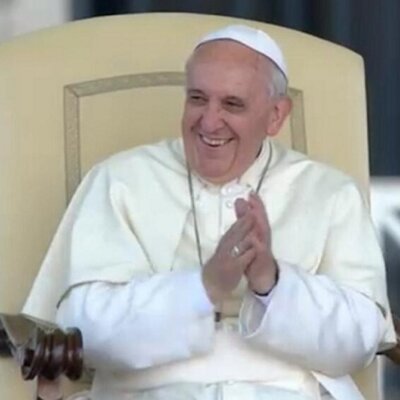It's easy, therefore, to think about the meaning of home and family on this first Sunday of the Christmas Season, as the Church reflects on the ancient commandment: Thou shalt honor thy father and thy mother.
God calls us to honor our parents in gratitude for the “gift of life, their love, and their work.” (CCC, no. 2215) The author of the Book of Sirach tells us as much: "With all your heart honor your father, and do not forget the birth pangs of your mother. Remember that through your parents you were born; what can you give back to them that equals their gift to you?" (Sirach 7:27-28)
It is a debt of love which we fulfill in all the various ages of our lives.
Childhood
As a child, we owe our parents not only respect, but obedience, for they are our first teachers of all the mysteries of life and living. As Proverbs reminds us: “keep your father's commandment, and forsake not your mother's teaching. . . . When you walk, they will lead you; when you lie down, they will watch over you; and when you awake, they will talk with you.” (Proverbs 6:20-22)
This is why Saint Paul reminds children of their obligation to "obey your parents in everything, for this pleases the Lord.” (Collosians 3:20; Cf. Ephesians 6:1) Day to day, in everything from waking up to going to school, children should obey their parents: it is what God wants them to do. It’s their job!
Adolescence
As children grow up and move away and get a job or go to college, they still owe a debt of love and respect to their parents, although this takes on new and unique dimensions. For no son has ever grown up to be exactly like his father, and no daughter will be exactly like her mother. Which is why adolescence, the end of childhood and the beginning of being an adult, is such an exciting time! Easy for a celibate to say!
Saint Luke tells us the story today of Jesus on the cusp of being a teenager deciding to remain behind in the Temple without his parents’ knowledge. In fact they find out he is missing 24 hours later, and find him in the Temple only after frantically looking for him for three more days!
You can imagine their state of mind! It’s clear from their first words to him: “Son, why have you done this to us? Your father and I have been looking for you with great anxiety.” “Why have you done this to us?” is a kind of responsorial refrain for parents of adolescents.
But when Jesus responds, we are told that his parents “did not understand what he said to them.” Jesus, a man like us in all things but sin, knew the pain of adolescence. Adolescents want to be adults, but they’re not yet ready. And parents still see them as children, but they’re not that anymore either. It’s a perfect storm of misunderstanding, where they don’t understand me and he doesn’t understand us.
Respect for parents is one of the biggest struggles for an adolescent, for at the same time I am defining myself over and against my father and mother, I am called to respect them! But despite the tensions, we are told, Jesus returned with them to Nazareth where be obeyed and respected them. For it is the will of God that parents at all stages of life be honored and respected.
Adulthood
As years pass into early adulthood, the obligation of obedience grows into an obligation of respect, as new challenges to emerge. For the first time, sons and daughters begin to see their parents for who they really are: as human beings with strengths and weaknesses, hopes and fears. There is a wonderful opportunity at this stage of life to make friends of your parents and to learn from the couple of decades of experience they have under their belts.
There are temptations at this stage as well. Such as the temptation of allowing unresolved adolescent tensions to become petrified states of alienation between child and parent. The only cure for such temptations, of course, is the forgiveness and love which can lead to respect of another adult, who, with their gifts and faults, first helped you (literally) to stand on your own two feet.
It’s like the great story of Naomi and Ruth. Naomi’s son, Mahlon, fell in love with and married Ruth. Then Mahlon died. So the widow Naomi, sobbing and all alone in the world, tells the still young Ruth that while she will miss her and bless her for all she had done for her now dead son, she must now go back to her own mother, for Naomi has nothing more she can give her.
Saint Luke tells us the story today of Jesus on the cusp of being a teenager deciding to remain behind in the Temple without his parents’ knowledge. In fact they find out he is missing 24 hours later, and find him in the Temple only after frantically looking for him for three more days!
You can imagine their state of mind! It’s clear from their first words to him: “Son, why have you done this to us? Your father and I have been looking for you with great anxiety.” “Why have you done this to us?” is a kind of responsorial refrain for parents of adolescents.
But when Jesus responds, we are told that his parents “did not understand what he said to them.” Jesus, a man like us in all things but sin, knew the pain of adolescence. Adolescents want to be adults, but they’re not yet ready. And parents still see them as children, but they’re not that anymore either. It’s a perfect storm of misunderstanding, where they don’t understand me and he doesn’t understand us.
Respect for parents is one of the biggest struggles for an adolescent, for at the same time I am defining myself over and against my father and mother, I am called to respect them! But despite the tensions, we are told, Jesus returned with them to Nazareth where be obeyed and respected them. For it is the will of God that parents at all stages of life be honored and respected.
Adulthood
As years pass into early adulthood, the obligation of obedience grows into an obligation of respect, as new challenges to emerge. For the first time, sons and daughters begin to see their parents for who they really are: as human beings with strengths and weaknesses, hopes and fears. There is a wonderful opportunity at this stage of life to make friends of your parents and to learn from the couple of decades of experience they have under their belts.
There are temptations at this stage as well. Such as the temptation of allowing unresolved adolescent tensions to become petrified states of alienation between child and parent. The only cure for such temptations, of course, is the forgiveness and love which can lead to respect of another adult, who, with their gifts and faults, first helped you (literally) to stand on your own two feet.
It’s like the great story of Naomi and Ruth. Naomi’s son, Mahlon, fell in love with and married Ruth. Then Mahlon died. So the widow Naomi, sobbing and all alone in the world, tells the still young Ruth that while she will miss her and bless her for all she had done for her now dead son, she must now go back to her own mother, for Naomi has nothing more she can give her.
But Ruth protests to her mother-in-law: "Do not ask me to abandon or forsake you! For wherever you go I will go, wherever you lodge I will lodge, your people shall be my people, and your God my God. Wherever you die I will die, and there be buried." (Ruth 1:16-17)
Ruth provides an example for every child of the debt they owe to their parents, to ever be their child and to love and respect them until the day they die. So Ruth returns to Bethlehem with Naomi and, with the help of God, provides for “the comfort and support of her old age.” (Cf. Ruth 4:15)
So it is with us. We all grow old, parents and children alike (although parents have a bit of a head start on their children). But when we are old, the obligation of respect and love perdures. “As much as they can,” the Catechism of the Catholic Church reminds us, children must give their parents “material and moral support in old age and in times of illness, loneliness, or distress.” (CCC, no. 2218)
Which is where I, in my advancing years, find myself today. Like so many of you, aging ourselves, we find ourselves caring for those who first cared for us. For, as Sirach reminds us, “whoever honors his father atones for sins...when he is old...be considerate of him...for kindness to a father will not be forgotten...”
And even once our parents have returned to God, our obligation to them continues, as we owe them a debt of prayer, that God might look upon them with mercy and show them perfect peace. Our love for them, like theirs for us, cannot be stilled, even by the separation of death.
For what makes the Holy Family holy is the honor and respect which Jesus, Mary, and Joseph held for each other. May we follow their example, showing to those who brought us into this world that “heartfelt compassion, kindness, humility, gentleness, and patience” which the Lord had shown to us.” (Collosians 3:13)
For what makes the Holy Family holy is the honor and respect which Jesus, Mary, and Joseph held for each other. May we follow their example, showing to those who brought us into this world that “heartfelt compassion, kindness, humility, gentleness, and patience” which the Lord had shown to us.” (Collosians 3:13)
Monsignor James P. Moroney
Rector




















